Laura Dreyfuss Digs Into The Politician's 1970s-Inspired Wardrobe and Sly Satire
Laura Dreyfuss plays McAfee, alongside Ben Platt's Payton Hobart, in Ryan Murphy's newest show, The Politician, on Netflix.
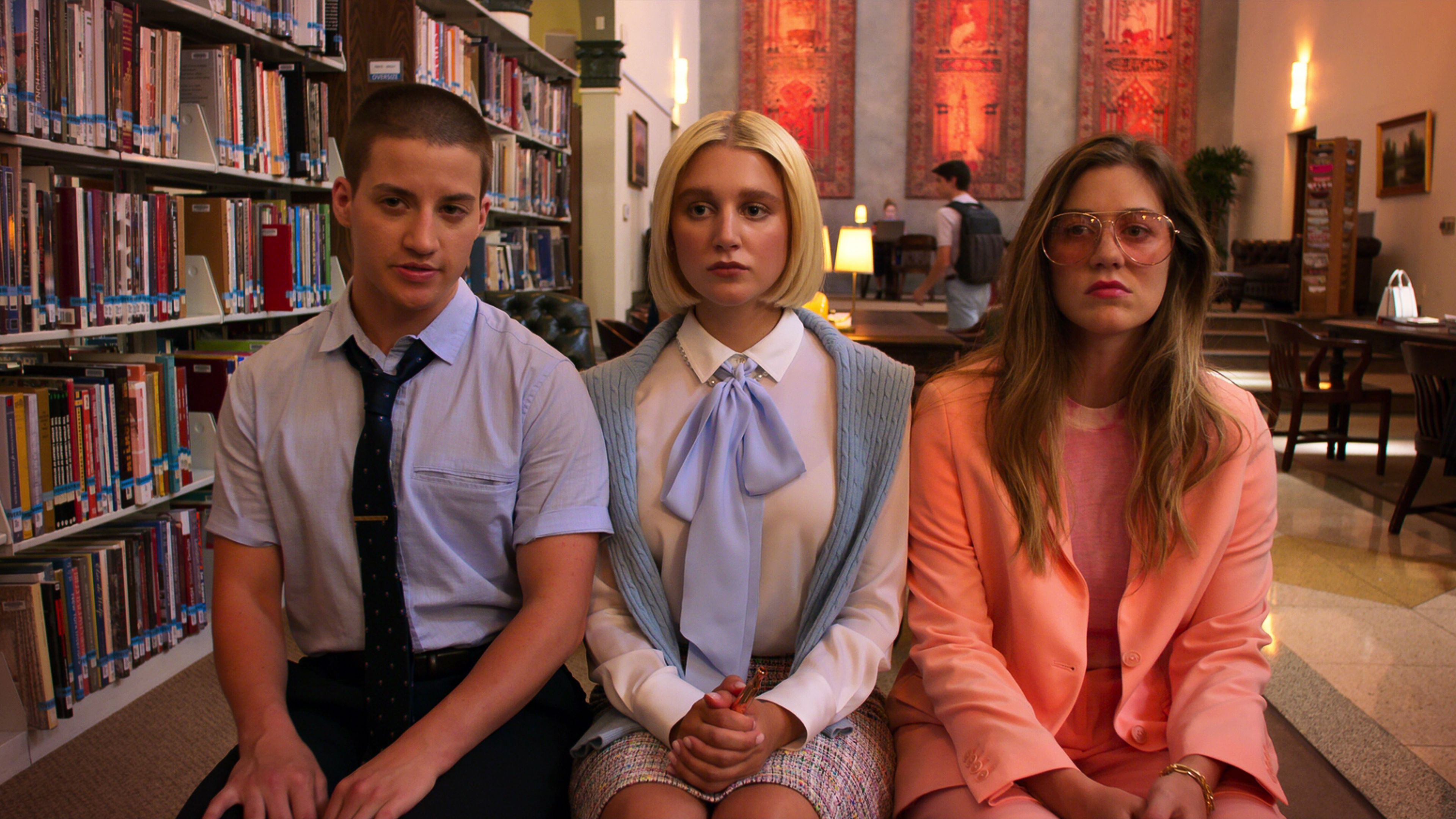
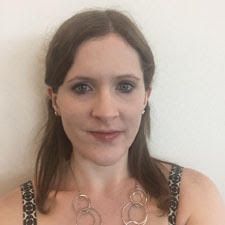
If you’re reading this, chances are you’ve already binged the hell out of The Politician, the larger-than-life new Netflix dramedy created by Ryan Murphy (the man responsible for cult hits Glee and American Horror Story). The first season follows Ben Platt’s aggressively ambitious high schooler Payton Hobart as he runs for student body president, which he sees as the first step in a long political career that will inevitably culminate with him in the Oval Office.
As the cliché goes, behind every great man is a great woman (or a team of them) and that’s exceedingly true in Payton’s case. Laural Dreyfuss’s McAfee is a core member of Payton’s small but fiercely dedicated campaign staff, and she’s so thoroughly competent and savvy that you may find yourself wondering why she’s not the candidate.
Below, Dreyfuss chats with Marie Claire about McAfee’s power suits and "professional bed head," reuniting with her Dear Evan Hansen co-star Platt, and how the show changed her political mindset.
[Mild spoilers below for season one of The Politician.]
Marie Claire: McAfee is this interesting contradiction: She’s incredibly confident and smart, but also socially awkward and a little disconnected. How did you lock into who she was?
LD: Yeah, I think she's someone who's incredibly focused, and she doesn't have a lot of room in her mind for social interactions, because she’s constantly thinking about things that are about five steps beyond that. That’s part of what makes her so brilliant, but it also makes her not the most social being! She kind of has a one-track mind, because she's so brilliant and she's able to see every single outcome to every situation that could happen at all times, so I would say in a way she's not really living in the present. She's constantly just thinking about every other possibility.
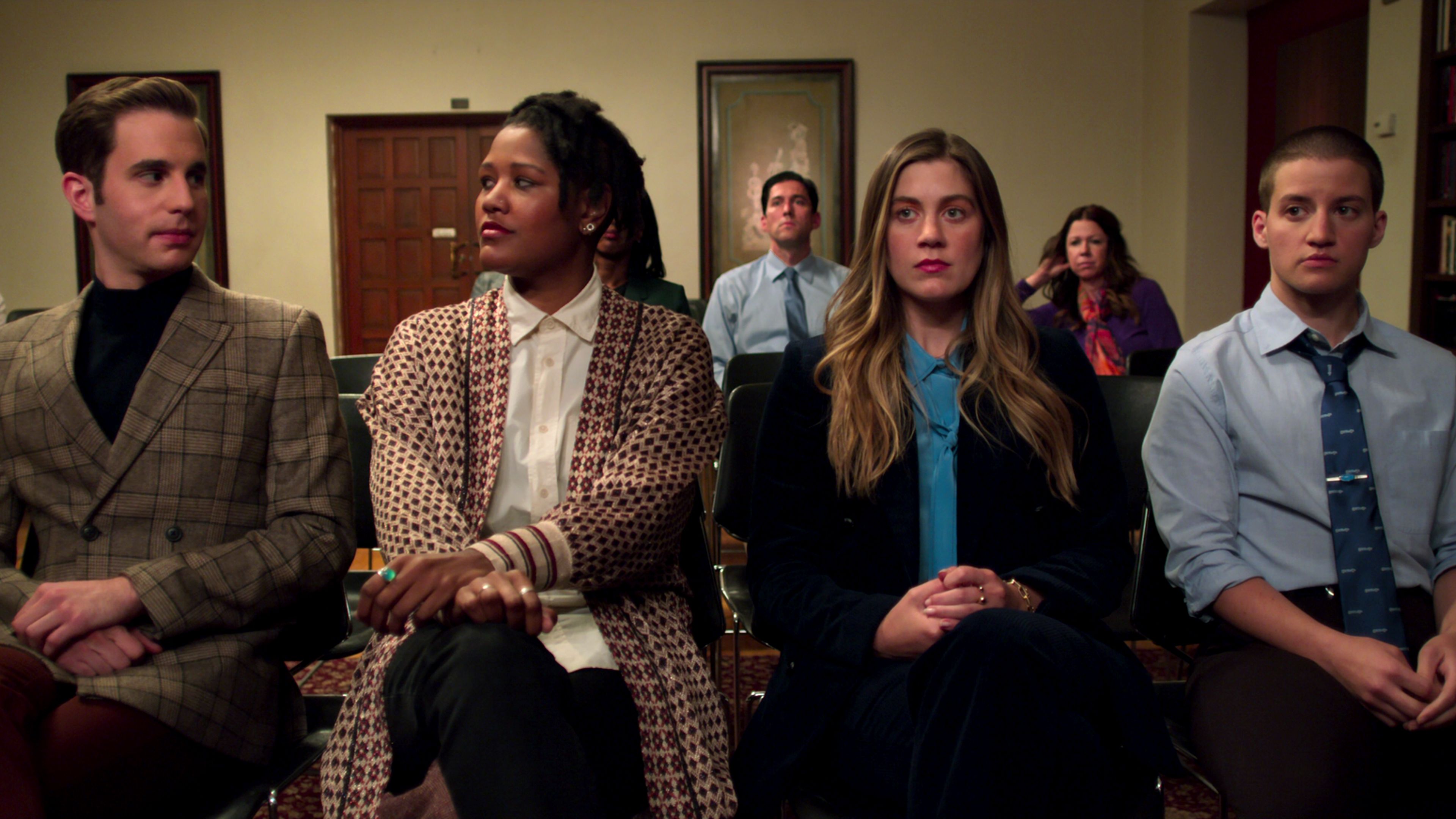
MC: We see a lot of the other characters waver in their loyalty to Payton, but McAfee is really ride or die. What do you think it is that she sees in him?
Stay In The Know
Get exclusive access to fashion and beauty trends, hot-off-the-press celebrity news, and more.
LD: I think she sees his ambition and his capability, and I think that deep down she sees his goodness. Even if he can't really see it himself, I think that there's something about her empathetically that is drawn to him, and I think she feels like he needs to be the best that he possibly can, and he has probably her closest option to getting to the White House, in her 17-year-old mind.
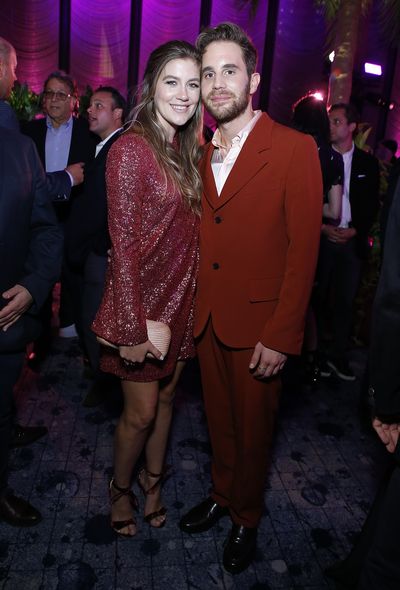
MC: You starred opposite Ben Platt in 'Dear Evan Hansen,' both off and on Broadway, for more than a year. Given that history, what was it like for you to reunite on screen?
LD: It was incredible! The biggest dream come true was getting to work with him again, I think neither of us could have imagined it happening. It was a complete coincidence and the fact that it worked out the way it did is just mind-blowing to me. The Politician was a very intimidating experience—it’s an intimidating show to be a part of, and we were both really nervous. So to have each other, to have that friendly face and that person you can trust to be there with you, was really important and really special. There were a few moments where we could just make eye contact and we'd feel better, because we kind of knew what the other person was thinking.
MC: How did McAfee’s style come together? The power suits are such a fun, specific choice.
LD: Yes! That was brought to me by the costume designers, Claire and Lily Parkinson, they were like “We have this vision, we want to do ‘70s power suits and have you be completely monochromatic,” and I was all in! It felt very me, while still being very specific to this character, and it was just really fun to be able to collaborate with the costume department on all of those ideas. I think now that we’re in New York [for season two] we're gonna probably move away from the brighter colors, because California really lends itself to that kind of palette, whereas I think New York is a little more muted and a little darker.
MC: I also love that McAfee’s wardrobe is so specific, and then she just has this messy-chic, totally unstyled long hair.
LD: Yeah, I always envisioned her having just rows and rows of power suits, but then I think she doesn't have time to do her hair, because she's so busy! I loved the idea that she just has professional bed head, and kind of rocks it.
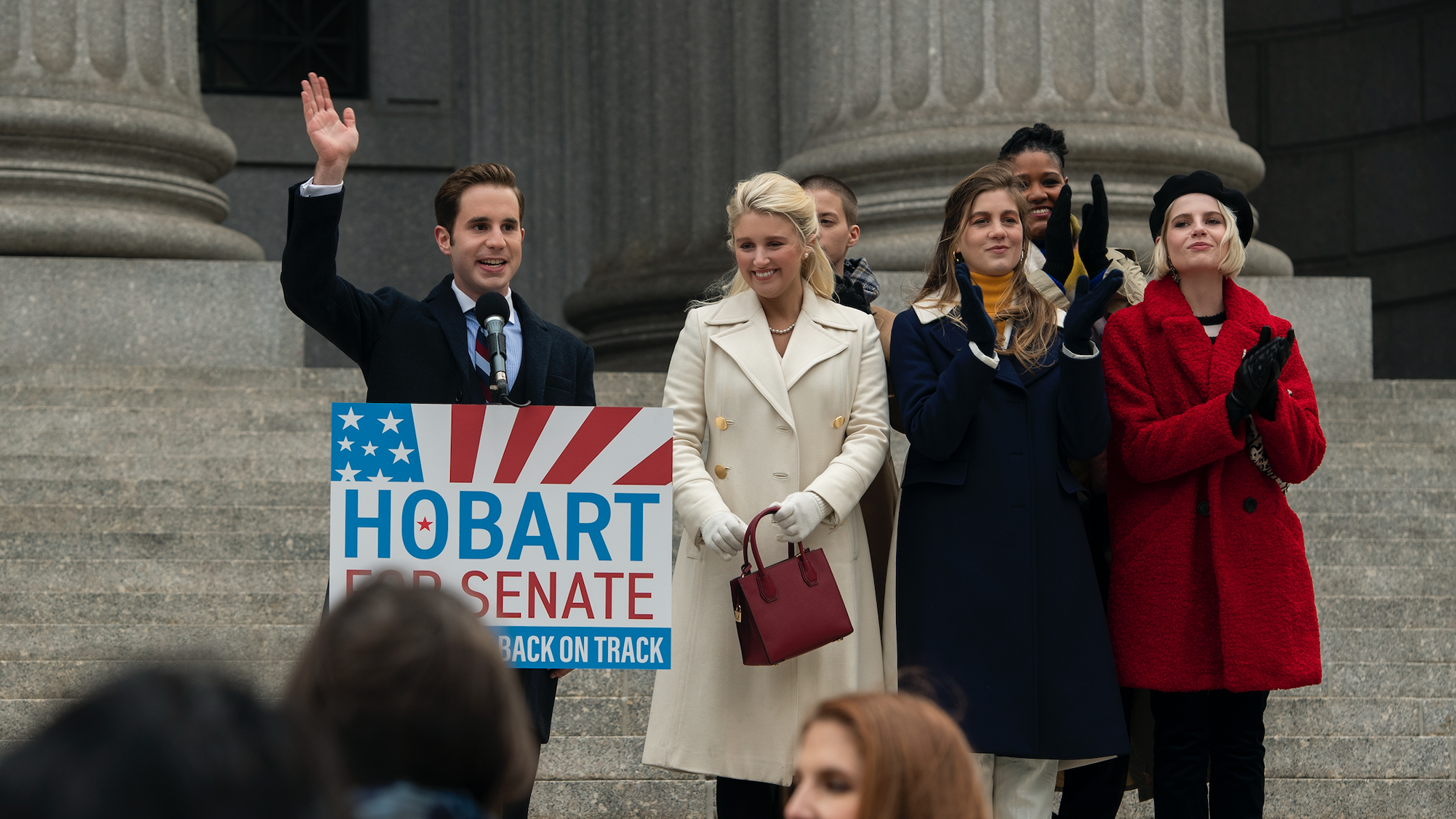
MC: What were your most memorable scenes to film?
LD: I would say my favorite scene was watching Ben sing "River'. That day felt really special, and I was just so moved, I think, by him and his beautiful soul. It really was just a pleasure to watch, and obviously we shoot these scenes over and over again, so we probably watched that scene like 18 times, but it was still so wonderful to witness that.
MC: What should we expect from season two?
LD: Well, we haven’t got a script yet so I’m curious to see as well, but I think you’re gonna see a continuation of the new direction we saw in the last episode. McAfee, and everyone, has this new drive now, and has been able to rally around Payton and come up with this new dream. It’s gonna be fun to see where that goes.
MC: Even though season one centers on a high school election, it’s satirizing politics in general. Did the show change the way you think about politics?
LD: Yeah, it did make me examine politics in a different way, and the biggest thing was examining what makes us drawn to certain leaders. So much of it is not based in facts, and it's oftentimes just an intuitive thing that drives us to vote for somebody, and so what the show is constantly addressing is "What is authenticity?" I think that as a society we need to understand why we want to get behind certain people to lead us, and how it’s often just a matter of who feels the most “authentic,” and what does that actually mean? I think that was something I really had to examine as a person, and as a citizen, is what makes me drawn to certain leaders?
RELATED STORY

Emma Dibdin is a freelance writer based in Los Angeles who writes about culture, mental health, and true crime. She loves owls, hates cilantro, and can find the queer subtext in literally anything.
-
 Princess Anne's Unexpected Suggestion About Mike Tindall's Nose
Princess Anne's Unexpected Suggestion About Mike Tindall's Nose"Princess Anne asked me if I'd have the surgery."
By Amy Mackelden Published
-
 Queen Elizabeth's "Disapproving" Royal Wedding Comment
Queen Elizabeth's "Disapproving" Royal Wedding CommentShe reportedly had lots of nice things to say, too.
By Amy Mackelden Published
-
 Palace Employees "Tried" to Get King Charles to "Slow Down"
Palace Employees "Tried" to Get King Charles to "Slow Down""Now he wants to do more and more and more. That's the problem."
By Amy Mackelden Published
-
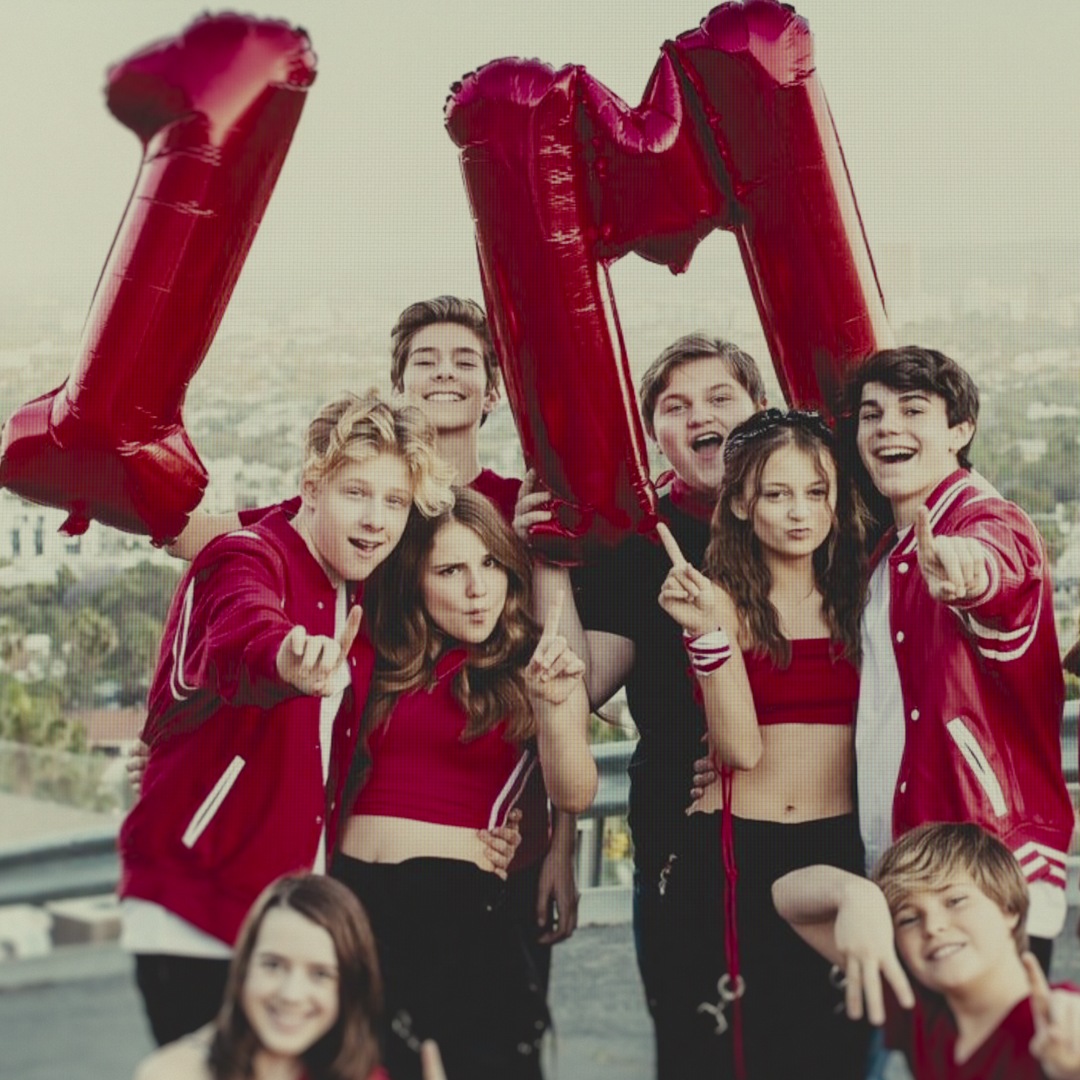 Where Are the Members of The Squad From 'Bad Influence: The Dark Side of Kidfluencing' Now?
Where Are the Members of The Squad From 'Bad Influence: The Dark Side of Kidfluencing' Now?The names in the Netflix docuseries have fallen out of touch with subject Piper Rockelle.
By Quinci LeGardye Published
-
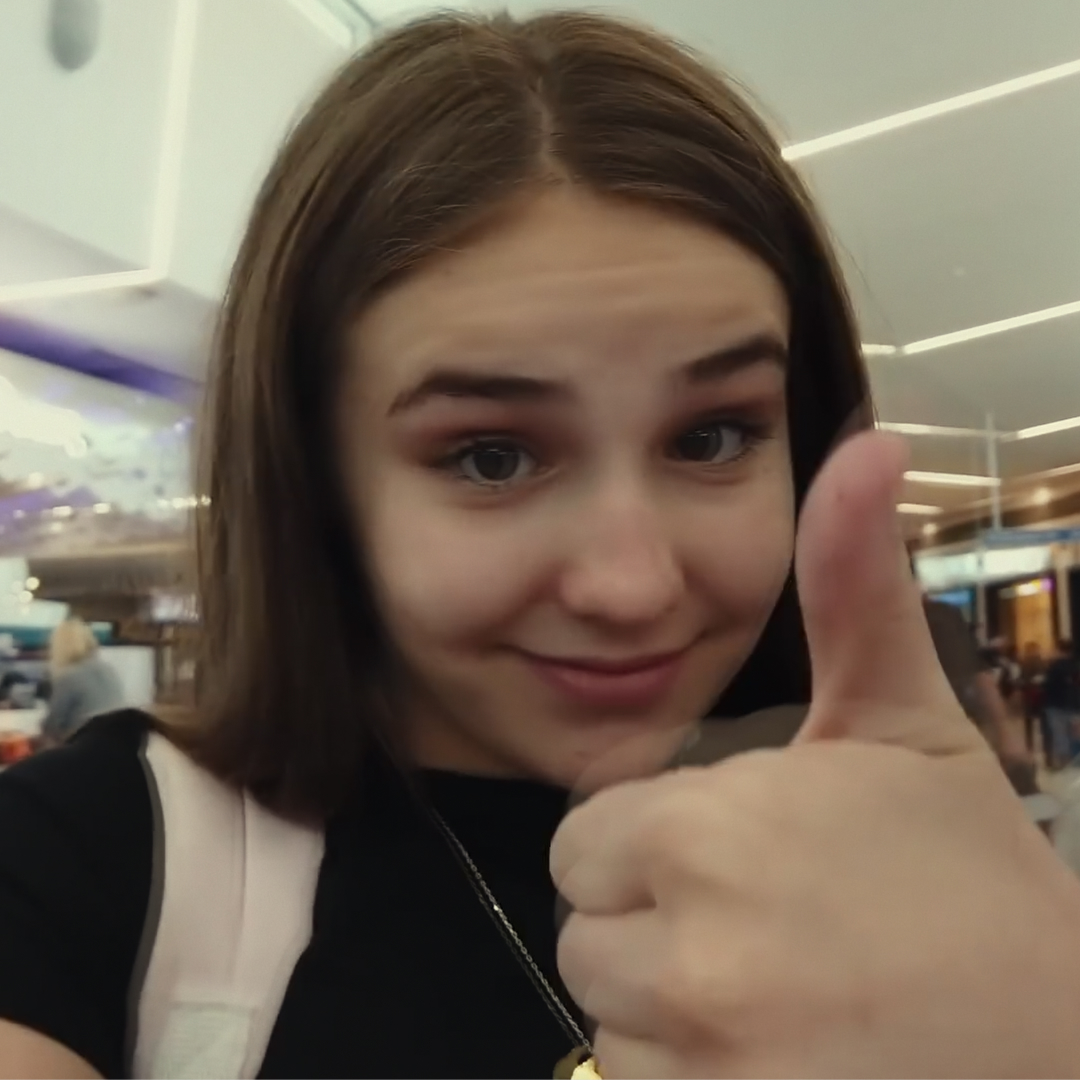 Where Is Piper Rockelle Now? What We Know About the Subject of 'Bad Influence: The Dark Side of Kidfluencing'
Where Is Piper Rockelle Now? What We Know About the Subject of 'Bad Influence: The Dark Side of Kidfluencing'The documentary examines a kidluencing empire and the lawsuit against it.
By Quinci LeGardye Published
-
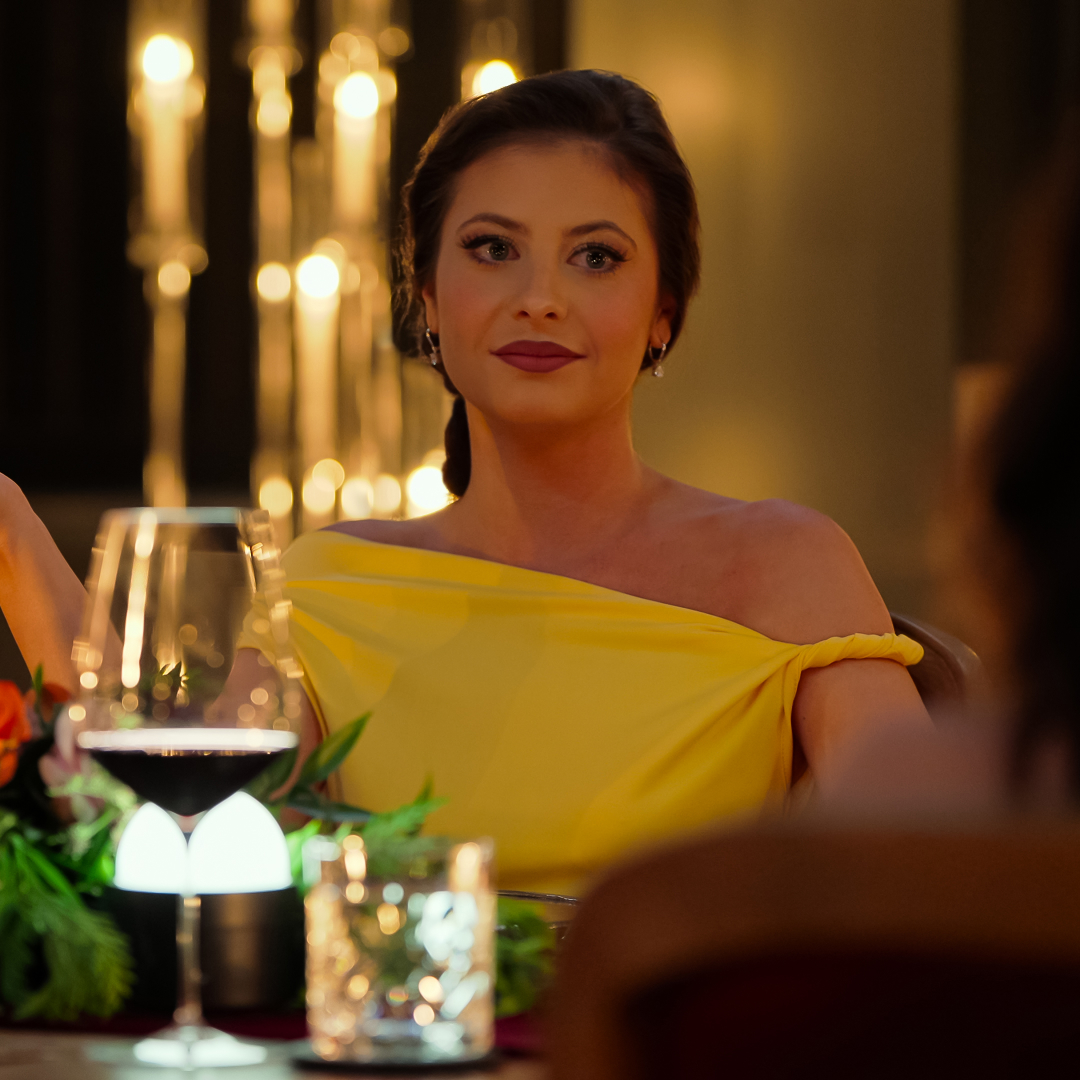 Who Won 'Million Dollar Secret?' All About Winner Cara Kies
Who Won 'Million Dollar Secret?' All About Winner Cara KiesHere's what to know about the In-N-Out line cook who took home the prize pot.
By Quinci LeGardye Published
-
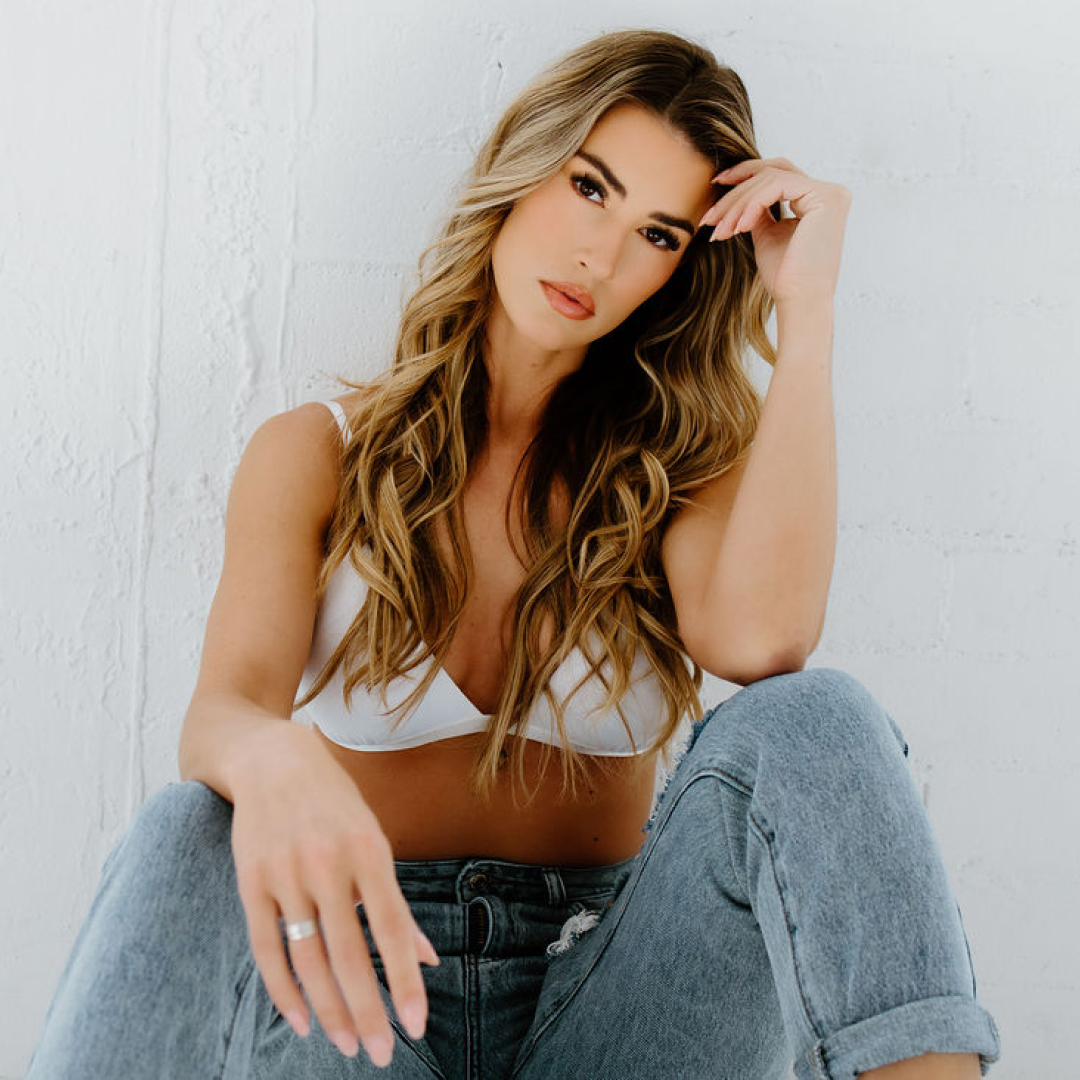 Sydnee Falkner Is More Than the 'Million Dollar Secret' Mean Girl
Sydnee Falkner Is More Than the 'Million Dollar Secret' Mean GirlThe reality star dishes on everything from her regrets and the finale to what you didn’t see on-screen in Netflix’s latest hit.
By Quinci LeGardye Published
-
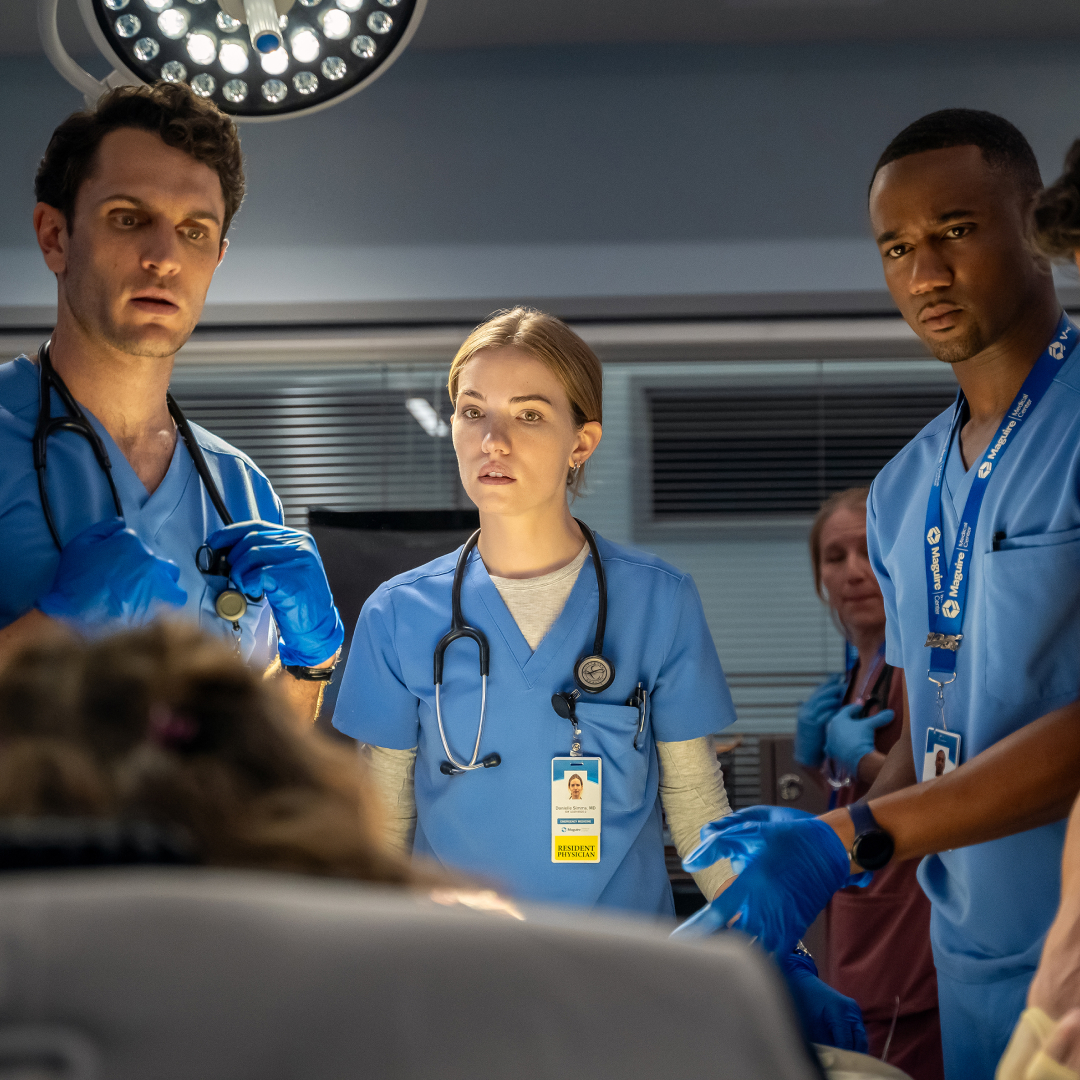 'Pulse' Season 2: Everything We Know
'Pulse' Season 2: Everything We KnowWe need to know about the future of the central will-they-won't-they STAT.
By Quinci LeGardye Published
-
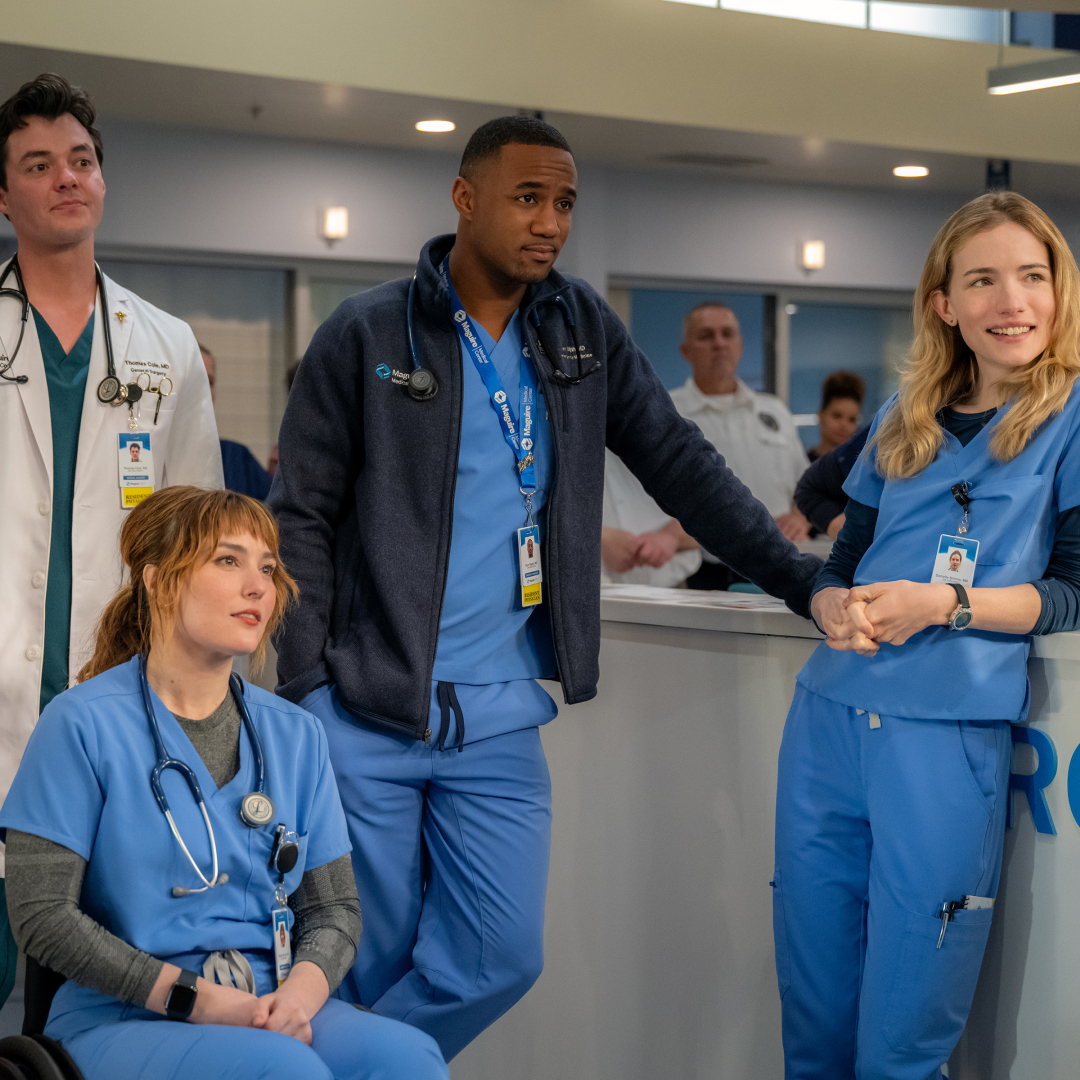 Meet the Cast of 'Pulse'
Meet the Cast of 'Pulse'We would trust the doctors at Maguire Medical Center with our lives.
By Quinci LeGardye Published
-
 Meet the Cast of 'Love on the Spectrum' Season 3
Meet the Cast of 'Love on the Spectrum' Season 3Netflix's Emmy-winning dating show returns with both fan-favorite couples and standout newcomers.
By Quinci LeGardye Published
-
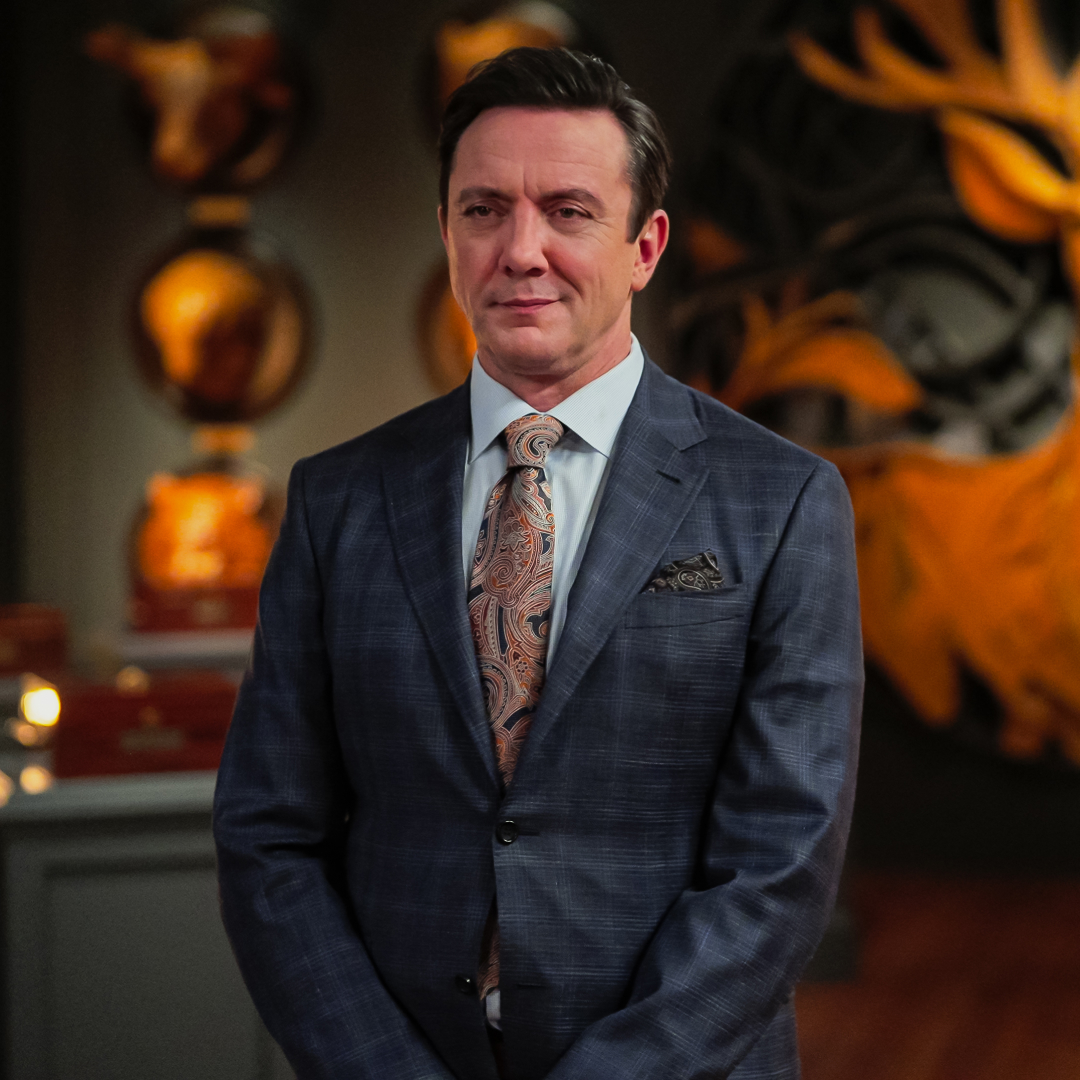 Who Is the 'Million Dollar Secret' Host? Meet Peter Serafinowicz
Who Is the 'Million Dollar Secret' Host? Meet Peter SerafinowiczIt's safe to say we're now obsessed with the British comedian keeping The Stag in order.
By Quinci LeGardye Published